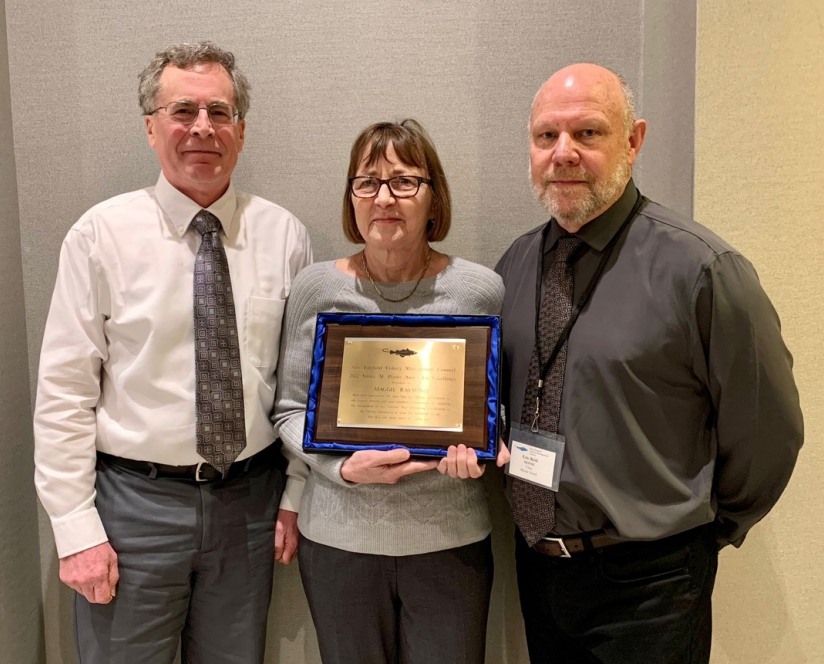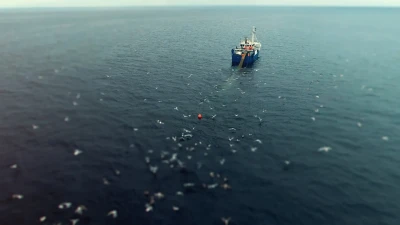The New England Fishery Management Council honored Maggie Raymond, former executive director of the Associated Fisheries of Maine and a 25-year participant in the council process, by presenting her with the 2022 Janice M. Plante Award for Excellence.
Council Chair Eric Reid called the recognition “long overdue.”
“Maggie represents the epitome of someone dedicated to both the commercial fishing industry and sustainable fisheries management,” said Reid. “Her tenure covers a period of tremendous change, stretching from the early days of the Magnuson-Stevens Act to our evolving adaptation to climate change and the challenges of coping with offshore wind development.”
Raymond’s strongest connection with the council is with groundfish, beginning around the time the council adopted limited entry and was transitioning the entire fishery to days-at-sea management. It was a period of intense conflict between fishermen and managers, driven by fear in the industry that the changes would collapse the fishery.
“Maggie helped people navigate these tumultuous changes and served as an invaluable conduit to explain the science and management implications to fishermen,” said Reid. “She was a fierce advocate for industry interests.”
Raymond served on the Groundfish Advisory Panel (GAP) for 25 years. The rapid pace of management changes – with over 20 framework actions between 1997 and 2003 – meant a huge time commitment was necessary to be an effective GAP member as Raymond was.
In addition to being a member of the GAP, she chaired the panel for many years, including during the development of effort reductions and the initial sector program that were implemented through Amendment 13 in 2004. She also was the first advisory panel chair to be assigned as a member of the Groundfish Plan Development Team (PDT).
As a PDT member, Raymond was diligent in explaining important industry interests and scrupulously avoided advocating solely for any individual segment of the industry.
The advice she gave was critical in helping PDT members understand conditions in the fishery and the likely impacts of management actions. Her questions also helped PDT members better prepare for and explain technical issues to both Council members and the public.
Raymond’s service on the Groundfish Advisory Panel continued through two other major amendments – the expansion of the sector program in Amendment 16 and the adoption of increased monitoring in Amendment 23.
In addition to her groundfish contributions, Raymond served on the Habitat Advisory Panel during the development of the council’s Omnibus Essential Fish Habitat Amendment 2, and she spent several years on the Monkfish Advisory Panel, including as chair during the very challenging exploration of a catch share program for the Monkfish Fishery Management Plan.
“Today we’re highlighting Maggie’s contributions to our own Council process,” said Reid, “but her work for fishermen and the fishing industry was not limited to the council. She was a key member of the New England fishing community for over 27 years and continues to make contributions even in her supposed ‘retirement.’”






